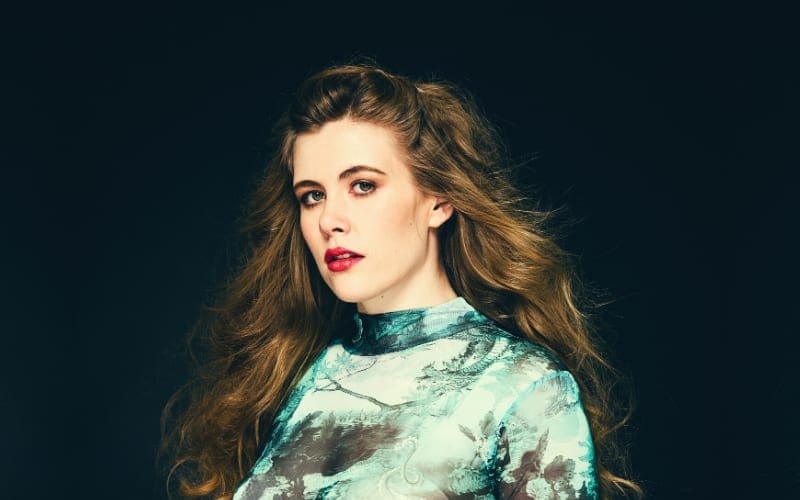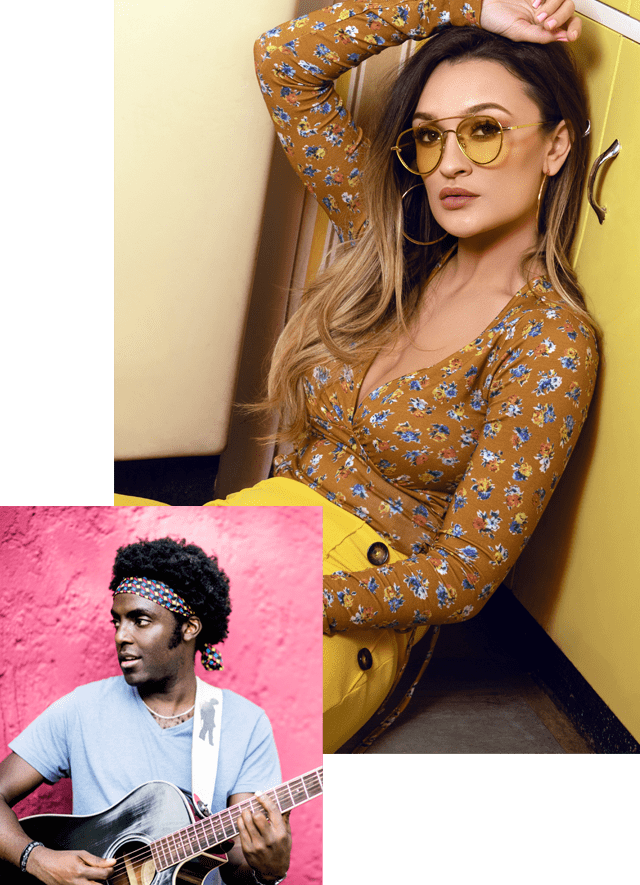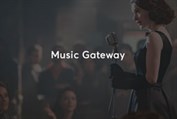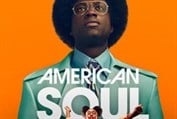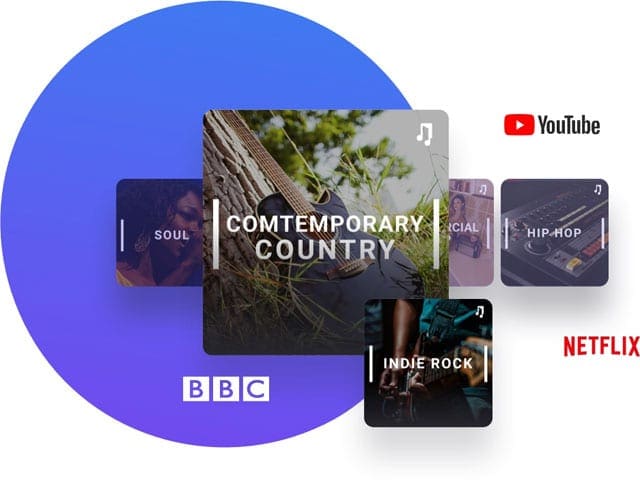How To Become A Successful DJ
Nowadays, it’s easier than ever to create your own music and get it out into the public sphere. There are labels of all shapes and sizes, access to affordable recording equipment, distribution sites designed for independent artists, not to mention anyone can upload a video to Youtube!
The rise of independent labels and musicians, as well as some incredible digital innovations, has dramatically changed the way the music industry operates. Major labels are trying to keep up with the adapting market and the flexibility that indies have without the traditional mechanisms in place. Successful music careers can now encompass so many different routes and directions. In short, it’s really a very exciting time to be an artist!
If you’re looking to make it in a career as a singer, songwriter, performer or recording artist, we’d strongly advise you to visualise what’s best for you, instead of rushing ahead before you’re ready.
Are you the right artist to be signed to a major label? Is your genre more niche and would an indie label suit your style better? Or do you want to be in charge of your own future and go fully independent? In this post, we’re going to be examining all the different elements involved in releasing music commercially to help you determine which route is best for you.
Writing Music
We’re going to start at the beginning of the music making process, the songs. Songwriting can come naturally to some, but to others, it’s something they’ll need help with throughout their careers. This isn’t unusual even at the highest levels of success in the industry, even the highest grossing artists work with songwriters or need help polishing their tracks. For others, however, it can be one of the defining characteristics of their sound.
Songwriting comprises writing both the lyrics and the melody in a song. Some artists are simply lyricists and rely on composers to develop the compositions, whereas some can do both. When you’re starting out, be honest about your abilities and decide where best to go from there. Depending on what route you want to take, major, indie or DIY, this will determine your next move.
At major labels, they have the resources to pull in skilled composers with proven track records in writing radio-friendly hooks. On the other hand, they may have songs lined up from successful, published songwriters for you to perform on in order to give your career the best start. If you’re signed to an independent label, their size and connections will determine how this process works. As there has been an influx in the number of artists and bands who are talented lyricists and composers, they may look only to sign artists who have demonstrated their ability to do both. Alternatively, they may ask freelance musicians to come into the studio and develop the song with you, also pulling in co-writers to smooth the edges of your song.
When it comes to writing music, the more people you have contributing their input, the less claim to the whole song you will have. When the revenue comes in from record sales and royalty collections, the profits are split between everyone who can lay claim to the copyright. There are a lot of varying stages to music making and publishing, (which we will get onto soon), but bear in mind the more people involved, the more wallets there are to feed.
Production
Good music production can make you sound professional and polished, poor production can make your music sound deflating and amateur. Production can blow a big hole in your budget, but it can make a huge difference in how you’re perceived.
If you’re signed to a major label, they’ll likely fix you with an amazing producer in a top of the range studio to record your tracks. For the majors, record sales are the driving force behind their work. They want your tracks to have every chance of commercial success. If you’re on an independent, this process will again depend on their size a budget. They may have the budget to get you in a studio or they may not.
Access to consumer production technology is one of the contributing factors to the rise of the DIY artist. It’s perfectly possible to record a high-quality sounding track in your bedroom with just a couple of microphones and a computer. This has enabled emerging artists to get their foot in the door and publish their first singles and EPs without having yet signed to a label to further their career. Self-production allows for total creative control, which you may have to compromise if you were signed to a label. Alternatively, DIY artists can hire producers to help develop their tracks and inspire new ideas.
Production is another area through which you could divulge copyright to other parties. When a song is recorded there are two sets of rights to be allocated; the composition rights, (for the song and melody), and the master rights, (for the recording of the song). If you work with a producer they can lay claim to the recording. This is how major labels make their money as they claim the master rights, given that a member of their staff recorded it. The compositional rights remain with the ones who wrote the music, but as we said before, the more people who were involved, the more people who can take a share of those rights.
Self-production and writing original songs with an acoustic guitar enable DIY musicians and those signed to small indie labels to retain both the compositional and master rights to their recordings. This means that when their music is sold and streamed, they will receive a higher percentage of royalties and revenue. Successful indie artists can often earn more money from their music than major label artists, as artists signed to majors often only own the copyright to a small proportion of their songs.
Publishing Music
This is how you monetise your music. Music publishing this the process of allowing your musical copyright to be exploited, for which you will be paid accordingly. You can earn mechanical and performance royalties through the playing, copying, streaming and broadcasting of your music, as well as open up sync licensing opportunities. Publishing is the process by which most artists generate their income.
When publishing music, there is another splitting of the rights. Usually, an artist will split their publishing rights 50/50 with their publisher. This does not affect the compositional rights, whoever they belong to they will stay with. Publishing rights are a different entity. If you publish your own music, you will own 100% of the publishing rights.
Publishing deals work by the licensing of the musical copyright by the composers/songwriters to the publishing company in exchange for their promise to promote, exploit and protect that property. Publishing deals can come in all forms, from single song publishing deals to full albums or multiple album contracts. When you hear about artists getting trapped in recording contracts with record labels, it’s usually because they sign lengthy publishing deals. Deals can also vary in the percentage of copyright licensed to the publisher. In purely administrative deals, the publisher only administers your music and pays you your royalties, usually for only 20% of the publishing rights.
Record labels are usually the music publishers for signed artists. Major labels tend to have their own publishing companies under their umbrella who collect your royalties on your behalf. Smaller labels may employ a publisher instead, or carry it out themselves. If you publish your music independently by registering your music with a series of performing rights agencies who will collect your royalties and protect your copyright, then you own the publishing rights to your music. Many DIY artists employ a publisher as collecting royalty payments from a series of global PROs is a time-consuming process and can be difficult to navigate in other territories.
Distribution
The internet has drastically changed how music is distributed, many now questioning the use of analogue formats. Today people listen to and purchase music on CDs, vinyl, tapes, iTunes, streaming services, internet radio, Youtube and more variations of electronic downloads and airplay. The way in which you distribute your music says something about your music and the level of your reach.
Major labels will distribute your music on CD, online, on streaming services and sometimes on vinyl. The resurgence of the vinyl industry has been rapid but still not enough to account for a healthy portion of the industry. If the decision is made by your label to have your music is printed on vinyl, it signifies longevity and poignancy to your music, as well as marking your place as a top-selling artist.
Independent record labels may also physically print your music if they believe in your product enough, but the print order will be significantly lower than that of a major label artist. They will also distribute your music online to all the relevant, global streaming and online radio stations, as well as online purchasing sites such as iTunes and Amazon.
If you are an independent artist, you’ll have to work with a distribution company to get your music out there. Artists cannot upload their music for sale to online retail sites or streaming services as music can generally only be distributed by a company the site/service has an existing relationship with. Companies like CD Baby exist to help DIY artists affordably get their music distributed online and in stores to enable them to compete with major label acts.
Marketing
It’s no use making music if you’re not going to tell anyone about it. Marketing can take an unknown artist to international stardom if done properly, it’s all about getting people to hear you and your music. Music marketing is about cultivating an artists image and identity, press is getting people talking and writing about your music whether it’s in magazines, online blogs or on TV. Both play a major part in music promotion.
This is where major labels budgets and pull can make a real difference; they can get new artists onto prime time TV for interviews, into iconic magazines, shoot incredible music videos and sponsor masses of online content. Radio is still a huge influence in the music industry and radio pluggers, people who lobby DJs for support on a record, can maximise airplay for artists on regional and national stations.
Independent labels and DIY artists don’t have the same resources, so rely heavily on social media and online content to promote their music. If the music is fresh and authentic then the press will pick up on it, especially if fans help create a buzz online. Social media has the potential to reach global audiences, but it’s only as effective as you make it. A strategic, authentic and exciting digital campaign can rival (or top!) the traditional methods used by majors if the music is worth the hype.
Shows And Touring
Due to the continued fall of record sales over the past two decades, touring has become the main source of revenue for artists signed and unsigned. Especially for major label acts who might not see much return in the way of sales and royalties through widely split recording contracts, touring is key to making a profit and paying off any debts they may have to the record label. It’s also one of the best ways to maintain your fan base, giving them a different level of interaction with your music. Put on a great show and they’ll come back next time. Merchandise is also a key revenue stream for artists with good profit margins and lots of customers at shows.
Touring is expensive however and if you’re independent then you should consider the costs to likely profits very carefully. Don’t go booking huge venues that you can’t fill, the venue might not agree to book you or you could end up paying the venue for losses on the door. Also, consider the money you’ll spend whilst on tour in terms of accommodation, food, transport and tour crew. Is this going to be a lucrative venture for you and can you sell the tickets?
Earning Money – Sales, Royalties and Sync Licensing
As we’ve said, record sales are falling and have been for a long time. As technology advances and many are choosing streaming services and the freedom they provide, physical sales are struggling. Although the internet is blamed for dwindling CD sales figures, artists are still paid for each time their music is played through royalties. Streaming revenue is not as high paying as record sales however, as a single stream on Spotify only amounts to $0.006 per stream and that must then be split between all the rights holders.
Royalties are generated not only through streams, but radio airplay, public broadcasting on TV, businesses playing your music in their stores, bars and clubs and anywhere else your music is heard publicly. Royalties generated through ‘performances’ of your music are called performance royalties, but you can also be paid mechanical royalties. These are owed to rights holders when their music is copied, for example, Spotify pays both performance and mechanical royalties to artists when their tracks are streamed because Spotify host a copy of their music on their platform.
Royalties and revenue from record sales are paid to the artist through their labels and publishers. If you’re a DIY artist, your royalties will be paid to you through the PRO you’ve registered your music with and record sales through any distribution companies you may have worked with.
Sync licensing is another way that artists can make money from licensing the use of their music in TV shows, films, adverts or on video games. Syncs can be highly competitive placements to secure and great promotion for the artist. Syncs are usually acquired by publishers and music supervisors, although independent artists without these figures can still work to secure sync deals. The more high profile the sync, the more money you can expect to be paid for the license and the more exposure for your track. Parties looking to secure a song for sync licenses usually offer a one-time sync fee, or license fee, as well as accruing performance royalties for every time the song is played alongside the visual in public.
Famous Songwriters
There are a whole host of success songwriters throughout the history of music, but here’s a shortlist; Elton John, John Lennon, Paul Simon, Bernie Taupin, Hank Williams, Jackson Brown, Neil Young, Van Morrison, Carole King, James Taylor, Bob Dylan, Joni Mitchell, Randy Newman and Leonard Cohen.
Most, if not all of these have songs in the rock and roll hall of fame.
Career Advancement
Every artist will start their career by playing small gigs in local pubs and small venues, maybe posting covers of popular songs on Youtube. You could either be spotted by an A&R rep for a label, found online or simply break out on your own. From here you’ll start writing music, recording and publishing it, growing an audience, playing bigger shows and then making more music. The cycle begins again.
If you have the creative stamina, fan base and investment to continue your recording career then there isn’t a limit to where it can take you. We’ve all seen it where an artist has had a hugely successful debut album and a really promising start but their second record flops because they couldn’t maintain the momentum. If you can go on to produce chart-topping album after album, then you could go down in history. Over the course of your recording career, you may move between labels, countries or even into different roles such as songwriter or producer.
Unions
As you’re starting out on your musical career, it’s a good idea to join a musician’s union should you ever be in a position where you need extra support. There are unions for musicians all over the world operating in different territories and representing the rights of different players in the music industry. In the UK, there is the Musicians Union which lobbies the government for changes to the law to support artists and musicians. There is also BASCA, the British Association of Songwriters, Composers and Authors, who act as a voice and support system for their members.
Successful Recording Artists
One of the most successful contemporary recording artists of recent years is American songstress, Taylor Swift. She’s broken records across the world for her best selling albums, won ten Grammy Awards and is listed as one of Rolling Stone’s best songwriters of all time. Her career has lasted over 11 years since the release of her first album and she has sold over 50 million records throughout her career.
What makes her such a successful artist is not only her undeniable songwriting and musical talent but her theatrical live performances and her close connection with her fans. She has demonstrated her ability to write country and pop albums, her style evolving with contemporary cultures and the market. She has been in the public eye for years but receives special attention from the press, who have always speculated about elements of Taylor’s personal life, especially her love life. Whenever she releases new music, the media and fans don’t hesitate to make links to her past love affairs and her new lyrics, thus generating even more hype.
If you’re an artist looking to get your career in music off the ground, submit your demos to Music Gateway to open new opportunities, or check out our music promotion and sync licensing services.
FAQ Section
Q: How much money does a songwriter make per song?
It’s estimated that an average songwriter makes $3,500 per year from their royalties, however, this figure is vastly inflated by the fact that less than 0.5% of songwriters earn 90% of all income generated from songwriter royalties.
Q: What skills do you need to be a songwriter?
Songwriters should have musical talent, creativity, strong communication skills, discipline, knowledge of music composition software and the ability to use mixers and synthesizers.
Q: How do you sell a song to an artist?
Songwriters rarely “sell” their songs. When you make a deal with a publisher, record label, or artist to record your song, it’s usually in the form of a contract or license. Sometimes a publisher will use the words “work for hire.” Be sure to consult a music business attorney before signing any contract.
Q: Do songwriters get paid upfront?
Just because labels are required (by law) to pay 9.1 cents per download to the songwriter (for the mechanical royalty) doesn’t mean they can’t pay more. … $100 is earned from radio royalties, $50 goes to the publisher (songwriter), $50 goes to the label (artist).
Q: What is the average salary of a songwriter?
$43,000 a year
Songwriter Wage. Songwriters write the lyrics for popular music and other forms of media related to or featuring music. They usually go to school to learn journalism, communications, English or music-related fields. According to State University, the average salary of songwriters is $43,000 a year.
Q: How do I become a good songwriter?
5 Exercises That Will Make You a Better Songwriter
- Learn, play, and diagram your favorite songs. Influences are a big part of every songwriter’s individual sound. …
- Freestyle write and record it. Freestyle, stream of consciousness writing is deceptively simple. …
- Write with someone else. …
- Try a point/counterpoint exercise. …
- Set aside dedicated time.
Q: Do you need a music publisher?
Some music publishers are very hands-on with the songwriters on their rosters. These publishers usually have a creative team whose job it is to work directly with the songwriters to help develop their craft. … As a songwriter, before you sign a publishing deal, you need to know how your publishing company operates.
Q: What are the elements of a song?
The Mechanical Elements of a Song
- Measure (Bar): a segment of time defined as a given number of beats of a given duration.
- Melody: the part of a song that can be sung alone so that the song is recognizable; the “lead”. …
- Harmony: the notes that compliment or support the melody line.
Q: How do songwriters get signed?
How To Get A Songwriting Staff Writing Deal
- Get to know music publishers organically. If there’s a publisher you are interested in and you are able, go to writer’s nights where they are featuring their writers. …
- Write with signed writers. …
- Do your homework. …
- Use everything you do well to your advantage. …
- Write great songs.
Q: How do I copyright a song?
Step 1: Record Your Song in a “Tangible Medium” …
Step 2: Register for An Account at the U.S. Copyright Office Website. …
Step 3: Fill out the Copyright Registration Application. …
Step 4: Pay the Registration Fee. …
Step 5: Submit a Copy of Your Song …
Step 6: Wait for Your Registration to Be Processed.
